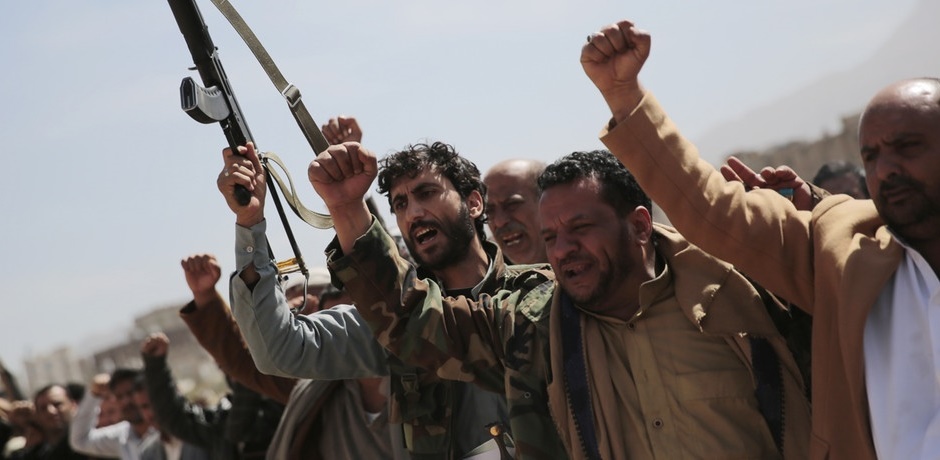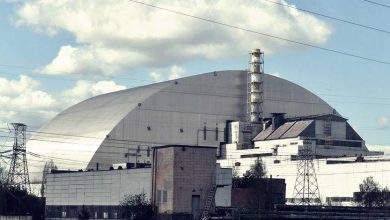Will the ceasefire in Yemen hold?

The new ceasefire is giving hope for peace in Yemen. But this is extremely fragile – and the war in Ukraine is making the already catastrophic humanitarian situation even more difficult.
The market in Yemen’s port city of Aden is well attended. Women jostle at the vegetable stalls, men push carts with fruit. In Sanaa, too, the street crossings are busy and cars are jammed. Pictures from the Reuters news agency show an almost normal life that has apparently at least partially returned to Yemen. So far, the nationwide ceasefire seems to be holding.
The UN special envoy for Yemen, Hans Grundberg, speaks of a breakthrough:
There have been encouraging signals since the ceasefire began. There was significantly less violence and no more air raids. Gasoline imports are starting up again. Commercial flights to Sanaa may resume, for the first time in six years. The impact of the ceasefire on the lives of citizens and also as a symbol should not be underestimated.
President Hadi relinquishes power
There is also a surprising political change: a few days ago, the previous Yemeni President Hadi resigned and handed over his power to a presidential council. Is that also a perspective for negotiations?
“It gives people in the north and south hope that there will be peace talks,” says Yemeni publisher Adib Alsayed. “We would like all parties to take part in the talks, because the fate of our country is at stake.”
Observer: standoff reason for ceasefire
In Yemen, former President Hadi’s troops, backed by a Saudi-led military coalition, are fighting the Houthi rebels who overran the country in 2014. The Houthis, in turn, receive aid from Iran. That is why the Yemen conflict is seen as a proxy war between the two regional powers and has so far been fueled more and more. Fierce fighting has recently raged in the region around Marib in particular – the city is considered strategically crucial because there is oil in the area.
According to observers, the reason for the two-month ceasefire that has now been agreed is a stalemate between the opponents – victory is apparently not within reach for either the Houthis or the Saudis. The Presidential Council, which was set up with the help of the Saudis, suggests that Saudi Arabia is apparently looking for a way out of the much-criticized Yemen operation by bringing all opponents of the Houthis to one table – attacks by the Houthis had recently also claimed victims in Saudi Arabia.
Fragile calm
But the Houthi rebels dampened optimism for peace: a spokesman for the rebels said Hadi’s resignation was a farce. There will only be peace when the foreign troops are withdrawn. Many citizens also fear that there will be no new political beginning.
“The change of power from Hadi to the Presidential Council makes no difference,” said this Sana’a resident. “But we long for peace so much, we long for security, for lower prices, for ports and airports to reopen.”
War in Ukraine makes crisis worse
According to the UN, Yemen is suffering from the worst humanitarian crisis in the world: children are starving every day. In addition to the tense political situation in the country, there is another problem: the war in Ukraine has made food supplies even more difficult.
“If the war between Russia and Ukraine continues like this, wheat prices here will rise even more,” said Ali Al-Kabous, a Yemeni wheat trader. “And oil prices are going up too. That’s going to be another heavy burden for people.”
Even now, many people can hardly afford the expensive groceries. And when it comes to flour, baker Mohammed is not sure how long it will be available
There is still flour on the market, but we fear that it will soon be sold out. We call on traders to import more and we call on the authorities to support farmers so that more grain is grown in Yemen and we can be self-sufficient.
The hope remains
It is unclear whether this could even be possible given the roughly 50 combat fronts in the country. That’s why it’s also important for the ceasefire to hold, said UN special envoy Hans Grundberg:
The coming weeks will be a test for the warring parties as to whether they will keep their word. It’s time to build trust – and that’s not easy after seven years of war. We must seize this moment to end the conflict.
But a real end to the war – that’s nothing more than a cautious hope in Yemen at the moment.



